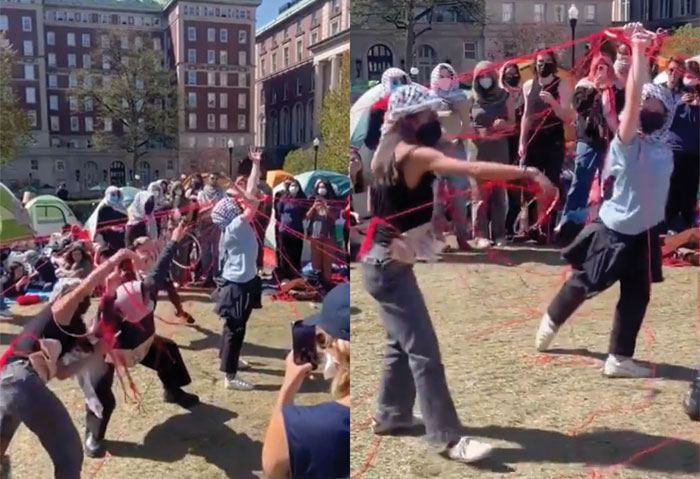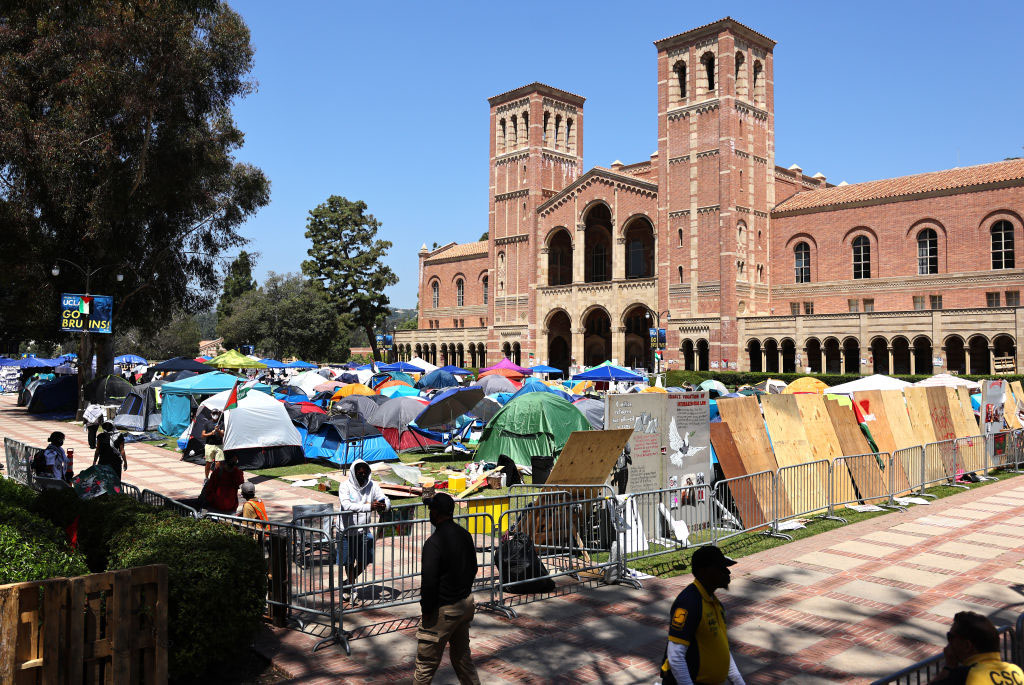Does comedy nullify hatred? Does comedy grant allowance to bigotry, racism and, most of all, anti-Semitism?
Nov. 3 began the opening weekend of the acclaimed “most hilarious movie ever”: “Borat: Cultural Learnings of America for Make Benefit Glorious Nation of Khazakstan.” After rushing to the movie theater on Saturday night, I was greatly displeased to find the show was sold out. But since nobody I knew got in either, I soon realized I could still see the show with my friends the following weekend.
After much anticipation, I finally saw “Borat,” and for most of the movie I was almost dying of laughter. However, at a few points my laughter came to an abrupt stop. One scene replaced the Spanish tradition of the Running of the Bulls with “The Running of the Jew.” During this scene, Kazakhs chase two huge, green-colored caricatures of Jews — one a man with an unnaturally large nose and long payot and the other a woman with a large nose and a hideous face. When the crowd erupted in laughter at these famous stereotypes, I felt as though I had traveled back 65 years to when anti-Semitism was openly rampant.
Another scene shows Borat staying at a bed and breakfast run by a Jewish couple. Thinking that the owners had metamorphosed into cockroaches, Borat throws money at the insects and flees the house in great fear. The implication that Jews are “cheap” was displayed and made fun of in front of millions of viewers all over the world. Throughout the film, Borat reinforces stereotypes of other minorities, as well as of Jews. One scene includes Borat sagging his pants and speaking in a mocking African American dialect. Practically throughout the entire film, Borat pokes fun at “hicks,” a term many of us in our own bigotry have used to categorized everyone living in Middle America.
This display of clearly anti-Semitic scenes, in combination with various other scenes offensive to minorities, truly tore my decision in half regarding whether I should support this movie. Do I side with my teenage perspective that says it’s hilarious? Or rather, do I side with my grown-up, more critical side that deems the film offensive and anti-Semitic?
Before making any judgments, we must reconsider Sacha Baron Cohen’s, a.k.a Borat’s, true motives for making this film. Certainly, Cohen is not serious in this anti-Semitism — he’s a Jew. Rather, Cohen successfully attempts to evoke the stupidity of anti-Semites — and all racism, for that matter — through his character, Borat. By making brash, racist remarks, Borat’s exposes the audience to the irrationality and “craziness” of any form of baseless hatred.
The movie also uncovers the very prevalent anti-Semitism in America. This anti-Semitism is something Diaspora Jews tend to forget about, for we assume it is improbable that such views still exist in this civilized, democratic country. This portrayal of reality truly is the genius and motive behind the movie.
Although Cohen’s objectives are correct and pure, many people are still sensitive to any form of racism for whatever reason. For example, my parents saw the movie and, for the most part, thought it was funny. Even with the understanding of Cohen’s intentions, they were still deeply offended by the anti-Semitic scenes. My parents found the sight of the non-Jews sitting next to them laughing at Jewish stereotypes especially disturbing. Furthermore, for those who don’t know Cohen’s true intentions, the movie could perpetuate and enhance prejudice. The Anti-Defamation League had something to say, as well, regarding the fragility of interpretations of Cohen’s film and actually wrote a letter to Cohen himself.
In summation, the letter stated, “We are concerned, however, that one serious pitfall is that the audience may not always be sophisticated enough to get the joke, and that some may even find it reinforcing their bigotry.”
After reviewing all possible interpretations and resulting occurrences, I believe that Borat should not be boycotted, and not even changed, for a variety of reasons. First, I trust that the majority of American audiences possess the intelligence to differentiate between true racism and a clear mockery of racism.
Second, changing or cutting out scenes of this movie would be the most racist thing to do. How can we take out scenes offensive to Jews but leave the rest of the movie, which is replete with scenes offensive to all the other minorities?
Maybe by attacking all minorities, Cohen tested our society even further. Who thinks their minority’s self-respect is above those of others?
Adam Deutsch is a sophomore at YULA.
Speak Up!
Tribe, a page by and for teens, appears the first issue of every month in The Jewish Journal. Ninth- to 12th-graders are invited to submit first-person columns, feature articles or news stories of up to 800 words. Deadline for the February issue is Jan. 15; Deadline for the March issue is Feb. 15. Send submissions to julief@jewishjournal.com.






















 More news and opinions than at a Shabbat dinner, right in your inbox.
More news and opinions than at a Shabbat dinner, right in your inbox.